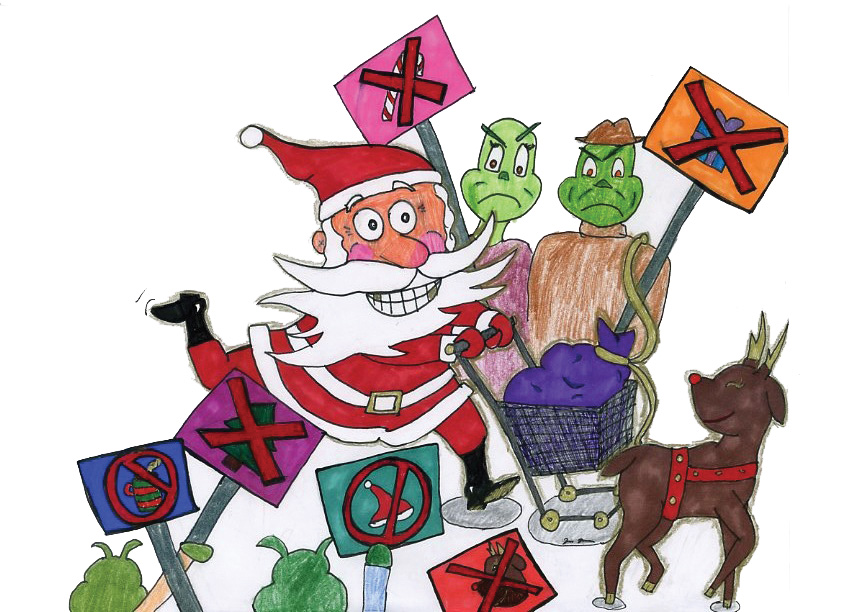There is a certain smell this time of year, an airborne whiff of wintry green. I am not writing of the wreaths, the trees, the mistletoes or Nativity scenes. It’s the smell of traffic jams, cut coupons, credit cards and cash. It’s the smell of commerce: ‘Tis the season to spend.
With finals week upon us, and the quarter ending soon, let us ponder what it means to celebrate the season. We all have heard the platitudes of love and care and kindness, but we must not forget another ingredient, often savored but seldom seen as good: materialism.
There was a time when I felt guilty for this craze. Rabbis, pastors and priests alike have warned against this ill ““ that consumerism has hijacked the holidays. “Yes,” I would agree, before I grabbed my toys in guilty glee. My mother would admonish me, saying, “You shouldn’t be so selfish. Christmas is the season of giving, not receiving.” To this day I cannot fathom it; if we are only meant to give, who will be the ones to get?
Imagine, if you will, this attitude applied to the Christmas tale itself. Upon the entrance of the magi bearing gifts of gold, frankincense and myrrh, our newborn Savior would have happily declined. And dear Mother Mary would have been proud of her son’s selflessness. If it sounds absurd, that’s because it is. Whatever the symbolism of the latter two gifts, Jesus still accepted gold.
Then what are the seasonal values that our commercial culture has corrupted? Hanukkah commemorates the story of an ever-burning oil; Christmas marks the tale of God himself becoming flesh. Whatever the holidays might mean, they are inexorably tied to the material ““ they are the stories of people getting nice things.
Of course, I do not care much for these stories. If the holidays are primarily spiritual, I’m certain that many of the most well-intentioned among us have never grasped nor cared about the season’s meaning. Nor is this disbelief necessarily hypocritical; the days of the Christian calendar take their names from a pagan pantheon, after all. No devotee of Thor has ever condemned my Thursday festivities.
These are all parts of our culture, whatever our beliefs, and they are rightly times of merriment for all to enjoy.
Commercialism, consumerism, materialism ““ these are all still nasty words. But let’s not delude ourselves. Money can buy happiness. At least, the lack thereof is no better a guarantee of good cheer. One thing, however, is certain: We cannot live on love alone.
Those who bemoan our commercial culture ““ who then revel in the self-satisfaction of self-denial ““ belie our very nature. But I am not in the business of guilt-mongering. There are those who do not need material possessions; there are others, yet, who do. To each his own, then ““ but one cannot say that the latter are inferior to the former.
I, for one, am grateful for a time of year to translate love into a tangible object, for myself and for others. What better to spread the joy than to give and get concrete things?
What better way to stimulate the economy? To buy and spend is to spread the wealth. And no one likes a Scrooge.
E-mail Manalastas at jmanalastas@media.ucla.edu. Send general comments to opinion@media.ucla.edu.
